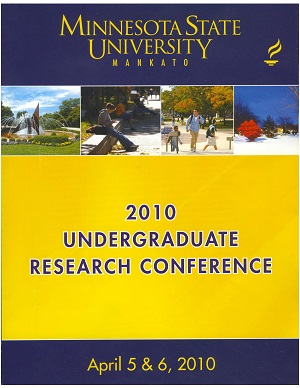The Limbo of Identity: Representations of Division in a Reunified Germany
Location
CSU 201
Start Date
5-4-2010 8:30 AM
End Date
5-4-2010 10:00 AM
Student's Major
World Languages and Cultures
Student's College
Arts and Humanities
Mentor's Name
Nadja Kramer
Mentor's Department
World Languages and Cultures
Mentor's College
Arts and Humanities
Description
This project examined various texts which represent division and lost East-German identity in the years following the collapse of the Berlin wall and the eventual reunification of Germany. Because national and personal identity was often in direct correlation with the former GDR regime and the communist ideals it upheld, once the GDR faded away into the history books, GDR identity became traumatized; many former citizens were nor ready to be successful functioning members of the new capitalist state they now found themselves in. This identity- conflict ultimately raises the question: is it possible for Germany to ever be truly united if such division exists among its populace? The project also focuses on how space, and the transformation of that space, can traumatize identity. Spaces that will be examined include public urban landscapes and spaces in the private sphere of life. Finally, the project examines the suggestions these texts make when it comes to addressing lost identity and overcoming such a daunting challenge as reconfiguring oneself in an entirely different cultural/political landscape.
The Limbo of Identity: Representations of Division in a Reunified Germany
CSU 201
This project examined various texts which represent division and lost East-German identity in the years following the collapse of the Berlin wall and the eventual reunification of Germany. Because national and personal identity was often in direct correlation with the former GDR regime and the communist ideals it upheld, once the GDR faded away into the history books, GDR identity became traumatized; many former citizens were nor ready to be successful functioning members of the new capitalist state they now found themselves in. This identity- conflict ultimately raises the question: is it possible for Germany to ever be truly united if such division exists among its populace? The project also focuses on how space, and the transformation of that space, can traumatize identity. Spaces that will be examined include public urban landscapes and spaces in the private sphere of life. Finally, the project examines the suggestions these texts make when it comes to addressing lost identity and overcoming such a daunting challenge as reconfiguring oneself in an entirely different cultural/political landscape.
Recommended Citation
Schmitt, Daniel. "The Limbo of Identity: Representations of Division in a Reunified Germany." Undergraduate Research Symposium, Mankato, MN, April 5, 2010.
https://cornerstone.lib.mnsu.edu/urs/2010/oral-session-01/3




